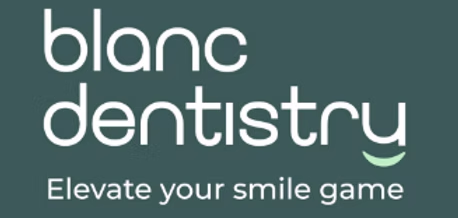Bruxism and TMJ: Are They Connected?
In today’s fast-paced world, stress, anxiety, and poor oral habits are becoming increasingly common—and so are dental conditions like bruxism and TMJ disorders. Many people suffer from one or both conditions but are unaware of their connection. So, are bruxism and TMJ actually related? Understanding the link between the two can help in early diagnosis, effective treatment, and prevention of further complications.
What is Bruxism?
Bruxism is a condition characterized by involuntary grinding, clenching, or gnashing of the teeth. It can occur while you’re awake (awake bruxism) or while you’re asleep (sleep bruxism), and often goes unnoticed until it starts causing physical damage or pain.
Common Signs of Bruxism
- Worn-down teeth or enamel
- Chipped or fractured teeth
- Jaw soreness or tightness
- Headaches, especially in the temples
- Tooth sensitivity
- Earaches or facial pain
Bruxism is often linked to stress, anxiety, sleep disorders, or certain lifestyle habits like excessive caffeine or alcohol consumption.
What is TMJ Disorder?
The temporomandibular joint (TMJ) connects your lower jaw (mandible) to your skull (temporal bone) on each side of your face. It acts like a sliding hinge and plays a crucial role in speaking, chewing, and facial movement. TMJ disorder (also known as TMD) occurs when there’s dysfunction or inflammation in this joint or its surrounding muscles.
Symptoms of TMJ Disorder
- Jaw pain or tenderness
- Clicking or popping sounds when opening the mouth
- Difficulty chewing or biting
- Limited jaw movement or lockjaw
- Headaches or neck pain
- Pain around the ear or temple
TMJ disorders can be caused by trauma, arthritis, malocclusion (misaligned bite), or excessive jaw muscle use—often from habits like bruxism.
Are Bruxism and TMJ Connected?
The short answer is yes—bruxism and TMJ disorders are closely connected. Bruxism can be both a cause and a consequence of TMJ problems. Here’s how:
1. Bruxism Can Lead to TMJ Disorders
When you grind or clench your teeth, you exert excessive force on your jaw muscles and the TMJ. Over time, this repetitive strain can:
- Damage the joint
- Cause inflammation
- Lead to misalignment of the jaw
- Overwork the muscles that support jaw function
This can trigger or worsen TMJ disorder, especially in individuals who grind their teeth while sleeping and remain unaware of the habit for years.
2. TMJ Disorders Can Trigger Bruxism
Conversely, jaw discomfort or misalignment from TMJ disorder may lead individuals to unconsciously clench their jaw in an attempt to alleviate discomfort. This response can worsen bruxism symptoms, creating a vicious cycle.
3. Shared Risk Factors
Bruxism and TMJ often share common risk factors such as:
- Emotional stress or anxiety
- Poor posture (especially forward head posture)
- Malocclusion or bite problems
- Jaw trauma
- Neurological conditions
- Certain medications (e.g., antidepressants)
The Vicious Cycle of Pain and Tension
Bruxism and TMJ can create a feedback loop. Grinding increases muscle tension and jaw inflammation, which aggravates the TMJ. A painful or inflamed TMJ then leads to more clenching or grinding to find relief. This cycle can result in chronic facial pain, migraines, earaches, and even sleep disturbances.
That’s why it’s essential to diagnose and manage both conditions early.
Diagnosing Bruxism and TMJ
1. Dental Examination
A dentist can detect signs of bruxism by examining tooth wear, enamel loss, and jaw alignment. They may also check for tenderness in the jaw muscles.
2. Imaging Tests
X-rays, CT scans, or MRIs may be recommended to assess the condition of the jaw joint and surrounding structures in suspected TMJ cases.
3. Sleep Study
If sleep bruxism is suspected, a polysomnography or sleep study may be advised to monitor jaw activity during sleep.
Treatment Options for Bruxism and TMJ
1. Mouthguards or Splints
Custom-made night guards help protect teeth from grinding and relieve pressure on the TMJ. These appliances are commonly used to manage both bruxism and TMJ symptoms.
2. Stress Management
Since emotional stress plays a key role, techniques like meditation, yoga, counseling, or biofeedback therapy can be highly effective.
3. Physical Therapy
Jaw exercises, massage, and physical therapy can relieve muscle tension and improve joint function.
4. Medications
Depending on severity, doctors may prescribe:
- Muscle relaxants
- Anti-inflammatory drugs (NSAIDs)
- Low-dose antidepressants (for bruxism)
- Botox injections (to reduce muscle activity)
5. Bite Correction
If malocclusion is the underlying cause, orthodontic treatment such as braces, Invisalign, or bite adjustment may be recommended.
6. Lifestyle Modifications
- Reduce caffeine and alcohol
- Avoid gum chewing and nail-biting
- Apply warm compresses to relieve jaw tension
- Maintain good posture
7. Surgery (Last Resort)
Surgical options like arthrocentesis, arthroscopy, or open joint surgery may be considered only in severe, non-responsive TMJ cases.
When to See a Doctor or Dentist
If you experience any of the following, it’s time to consult a healthcare provider:
- Persistent jaw pain or stiffness
- Clicking or popping in the jaw
- Frequent headaches or migraines
- Teeth grinding noticed by a partner
- Difficulty in opening or closing your mouth
Early intervention can prevent long-term complications and protect both your dental and joint health.
Prevention Tips
Preventing bruxism and TMJ issues often goes hand-in-hand:
- Manage Stress: Regular relaxation techniques help reduce clenching habits.
- Sleep Hygiene: Maintain a consistent sleep schedule and avoid screens before bed.
- Ergonomics: Maintain good posture while working, especially at a desk.
- Routine Dental Check-ups: Dentists can catch early signs of bruxism before significant damage occurs.
Conclusion
Bruxism and TMJ disorder are two interlinked conditions that can significantly impact your oral and overall health. While one may trigger or worsen the other, the good news is that both conditions are treatable—especially when diagnosed early.
Understanding the connection between bruxism and TMJ is key to choosing the right treatment strategy. Whether it’s through night guards, stress management, physical therapy, or lifestyle changes, addressing the root cause can bring lasting relief.
Book a consultation with Blanc Dentistry’s TMJ specialist today and start your journey to relief. Call us at +91 9022692902.


